This post is a summary of our summer in Central Asia, particularly for whoever has Geography knowledge deficiencies (and/or has not read the previous posts)
We have crossed the border with Turkey a few days ago, are getting close to Greece and have thus left the multiple post-Soviet countries of Central-Asia and the Caucasus.
- First of all, read the posts from the last pasts months!
- Second, Central Asia is in Asia:
- China ∈ Asia
- Central Asia ∈ Asia
- ⊬ China = Central Asia
- Third, shame on you if you still do not know in which country Dushanbe, Bishkek or Tashkent are.
- Forth, even bigger shame if you cannot place Kazakhstan on a map (even worse if you have never heard of Baikonur and Gagarin!). (Cassie’s comment: can anyone tell that Cédric is a geography and history buff?)
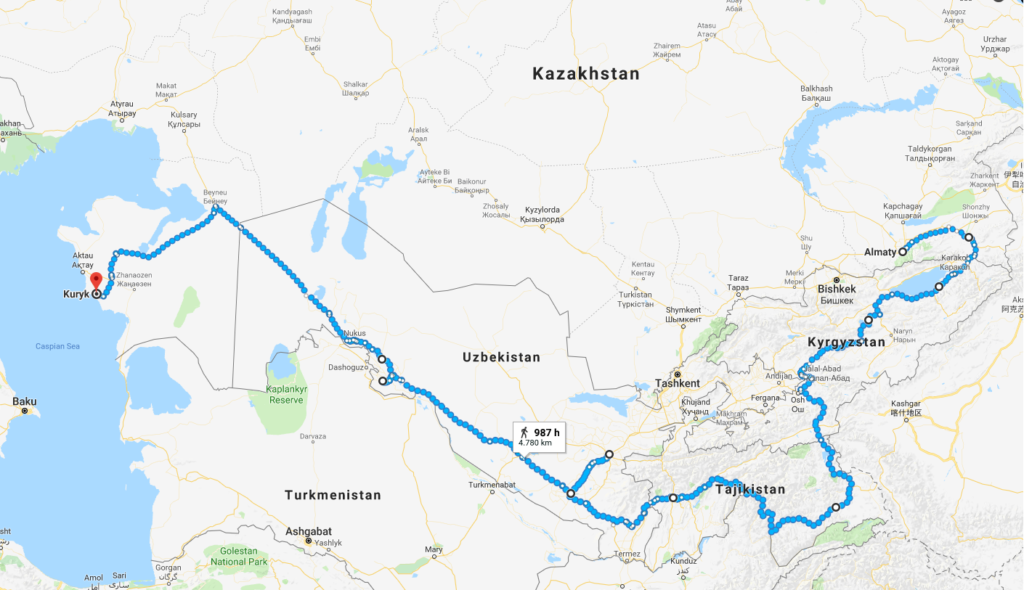
But just in case you are still lost with all the ‘Stans and the tiny countries of the Caucasus, here is our short summary of the last three months:
- Kazakhstan: by far the richest country of Central Asia, mostly due to a sparse population and a lot of natural resources, which helped to transition more quickly to a market economy.
- We liked:
- endless desert land areas, the steppe landscapes.
- surprisingly rugged mountains on the northern side of the Tian-Shan range, with canyons, glaciers, etc.
- little importance of religion, Kazakhstan also felt like the most social-liberal country of Central-Asia, with more diversity and fewer gender inequalities.
- The only country where you are likely to find better quality products (food or outdoor equipment), even non-fake goods!
- Almaty is surprisingly clean, well-maintained and even has bike-lanes!
- Good roads (and good enough drivers – although Kazakhs become slightly arrogant as soon as they are on the other side of their border)!
- We disliked:
- Kazakhstan also felt like the country with the most nonchalant people. It felt like whenever you ask something you annoy people – not just a random question in the street, but we also got refused from empty restaurants just because they were not motivated to cook today (seriously!), hotel owners annoyed that they have to go up the stairs to show the bedroom (checking the room before paying is a wise idea in any of those countries…), people who just tell you that they don’t know anything (although when it’s about their job), etc.
- For whatever reason, you can find more food products in Kazakhstan, but Kazakhstan was also the country where we found the ‘most-expired’ products. Shops have cans having shelf-life of several years, but still expired by 5 years! 10-year-old sardines are seriously disgusting (not sure if these were better at the beginning though).
- Distances! The country has many interesting sights, but those are usually in very remote areas, and very difficult to reach. Going from Almaty to Aktau will take you three full days in a train, with very not much in-between. And even in the Mangistau region (Aktau), you will need hours of driving (days of cycling) to reach some interesting areas.
- We liked:
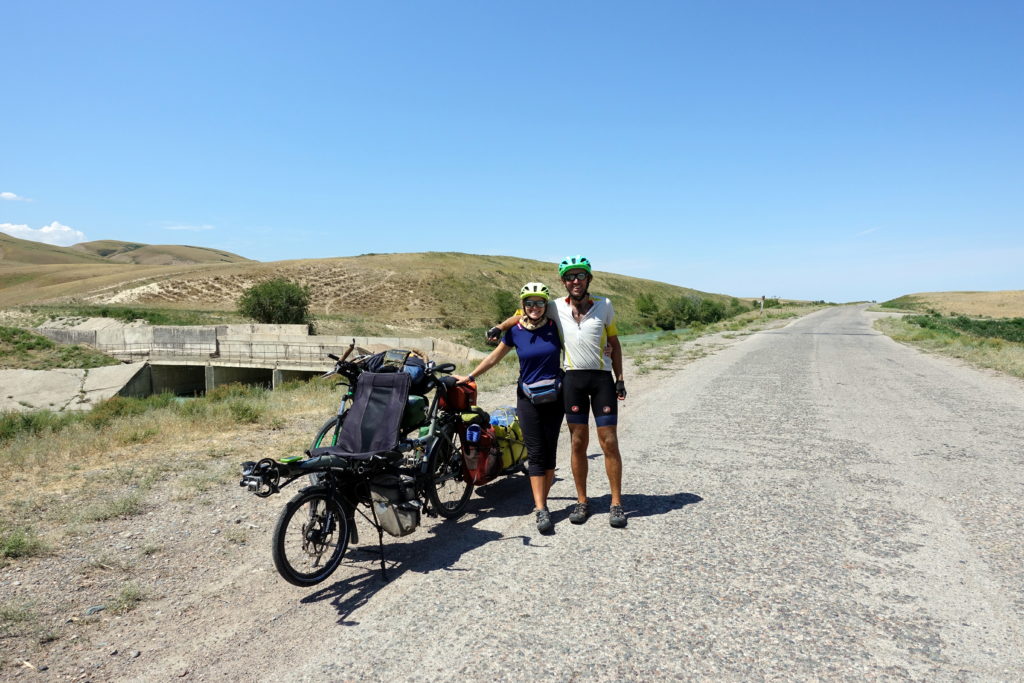
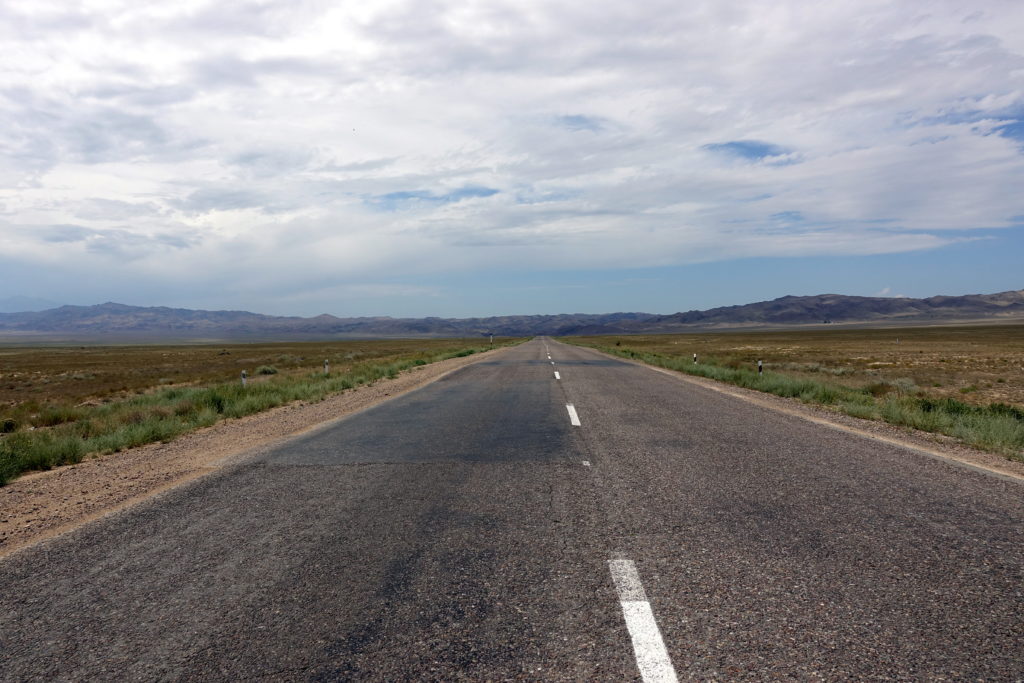
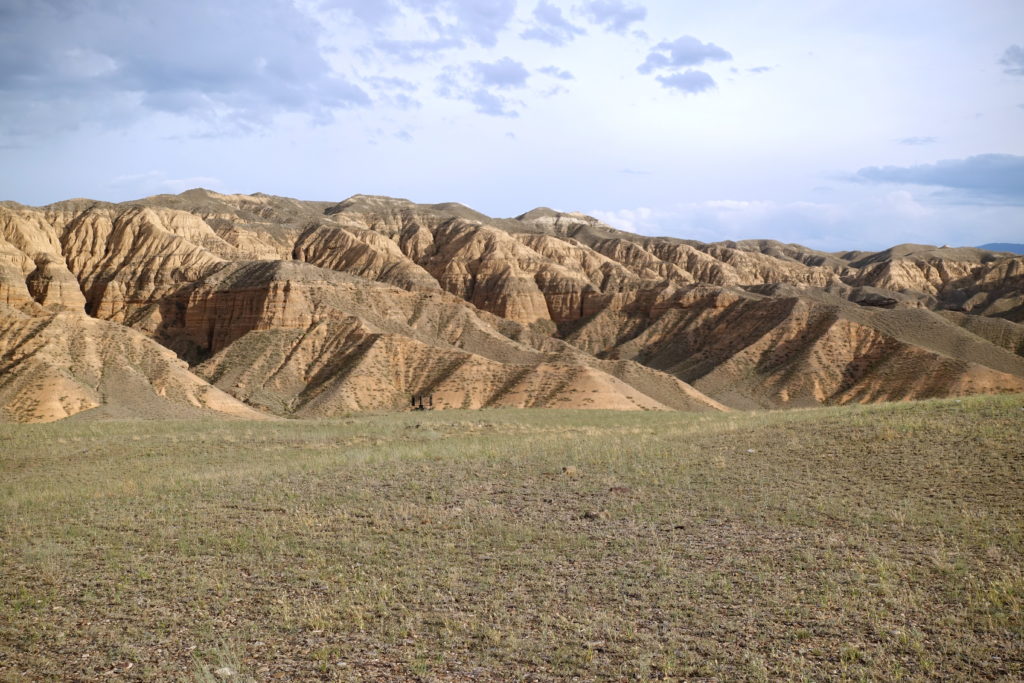
- Kyrgyzstan: a poorer country, yet more traditional and very much a mountainous version of nomadic Mongolia.
- We liked:
- Gorgeous landscapes, with changing views from valley to valley, the greenest country of all, with high-altitude steppes and plenty of horses.
- The dream country for camping. Basically, any place in Kyrgyzstan is an awesome place to pitch your tent for the night. Locals do not mind, especially in the more mountainous regions, you have a tent, they have a bigger Yurt a few hundred meters away, everything is alright!
- Friendly folks in the mountainous regions, with a very relaxed atmosphere. Kids try to race you running next to the bike (even toddlers would kill many athletes at high altitude!) and adults wave at you without expecting you to give them money or buy a horse.
- Mobile internet is surprisingly good and cheap!
- Being able to go uphill faster than Kyrgyz Audi cars from the 80s. Audi is the cool car brand of the country, unfortunately a new Audi would cost a life-long wage, so they still spend a lot of money on rusty Audis, with still the driving style of a rally-championship. We got passed multiple times uphill by a roaring car, only to catch it up a few kilometers later with the driver randomly hitting the engine with a hammer.
- We disliked:
- The drivers! There is an obvious problem of alcoholism, with additionally some suicidal-driving behavior. Kyrgyzstan was the worst place to ride on roads, we always had to look at every single car coming from any direction – and get ready to pull-out the road at any time. They just don’t care! Luckily, we took some off-road tracks with very (very) little traffic.
- Tracks: because we did everything possible to avoid roads, and because there are really not that many roads, we ended up on the roughest tracks we have encountered this year. Kyrgyzstan was definitely the toughest country, both for the profile (continuously going up and down from 1000m to 3000m), and the road conditions (washboard, trenches on the road, rocks, etc.) – get ready to bike 7h for 40km and going uphill is not necessarily much slower than downhill.
- The Fergana valley, much more conservative, much more gender-divided, with men acting like young teenagers trying to show that they are stronger than you. Imagine a 12-year-old trying to look like a mobster, and you have about the idea of men in the Osh-Jalalabad region.
- We liked:
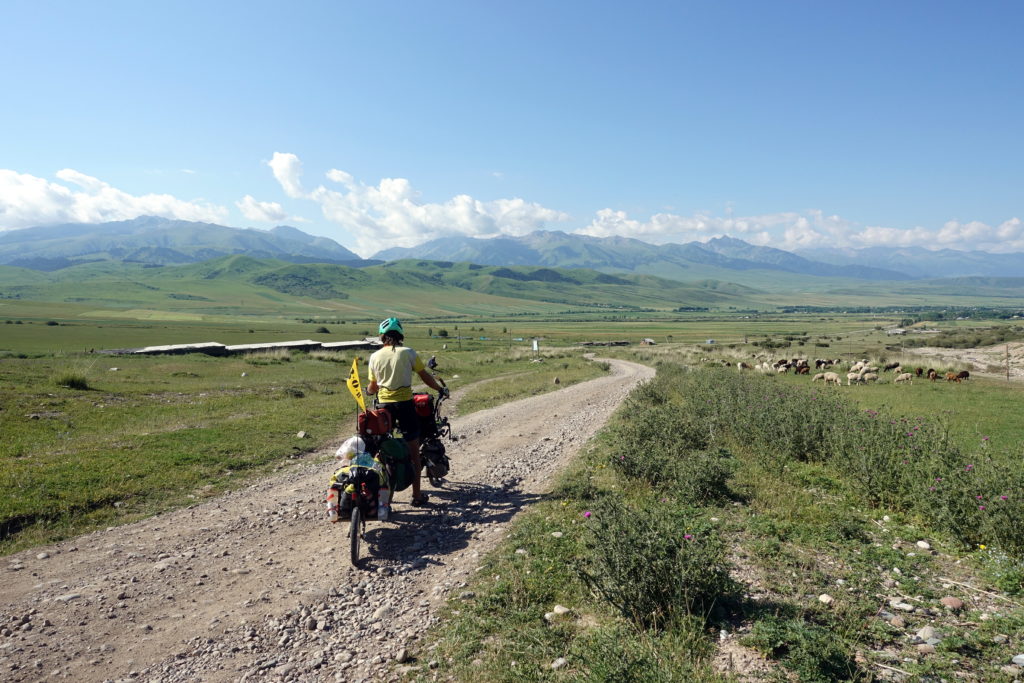
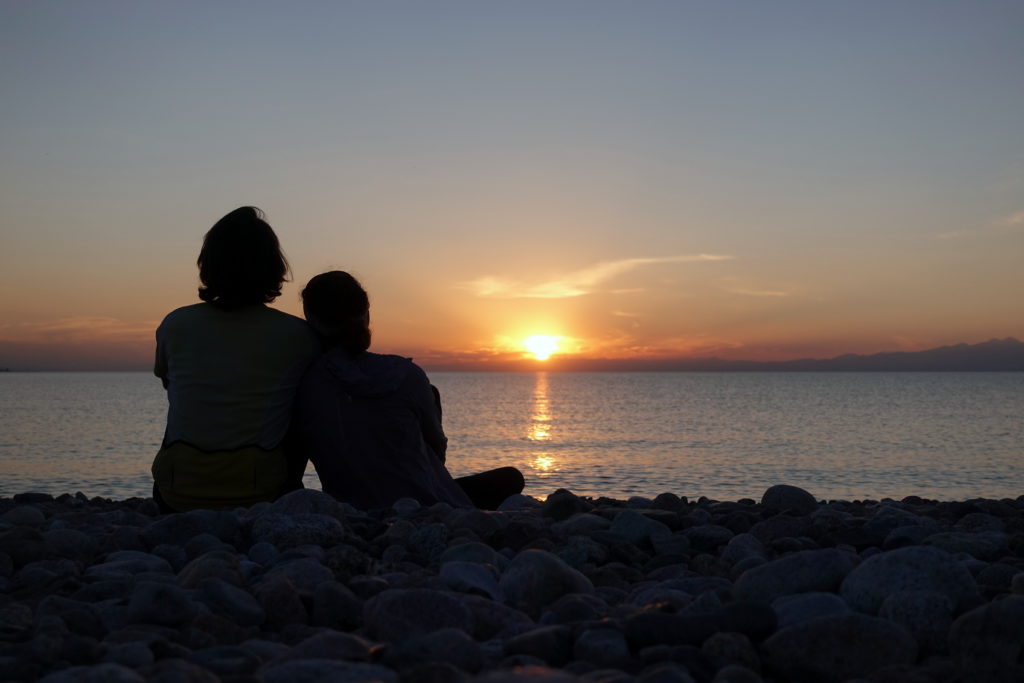
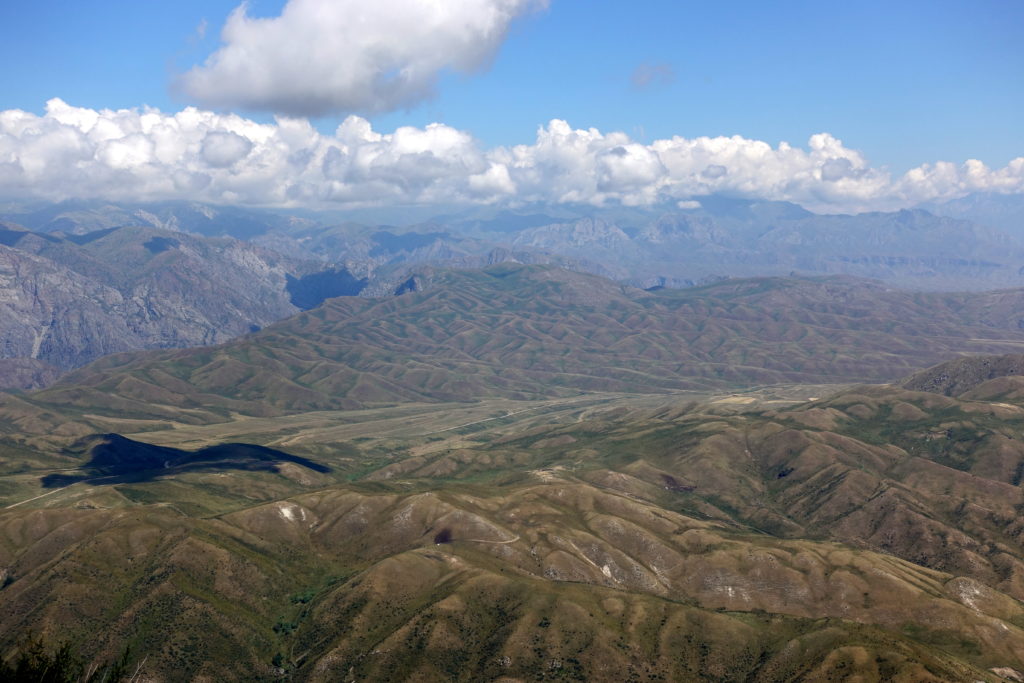
- Tajikistan: the poorest of the Asian countries (except Yemen and Afghanistan, which are active war zones). The highest country on earth (average altitude), possibly one of the most remote and inaccessible regions on earth too. The feeling to be on a completely different universe.
- We liked:
- Cycling on another planet, over days we felt like doing some space travel between the Moon, Mars, Venus and other satellites of distant planets – lack of oxygen included.
- The road condition of the Pamir highway, although very rough, was easier than we had anticipated (also probably because after the tracks in the Kazarman and Song-Kul areas of Kyrgyzstan, everything seems easier).
- Incredible hospitality of locals in the Pamirs. People live in extreme poverty but are always happy to help, do not try to scam us, are very friendly, and amazingly many people speak English there. We really had the feeling in some villages to be with the toughest survivors, and the only way to survive is to help each other without condition or limit.
- Meeting a lot of other cyclists on the way, especially as we were cycling in the opposite direction as most of them (it is supposed to be easier to bike Dushanbe-Osh than the other way around).
- Dushanbe is a surprisingly enjoyable city. Not much to see, but it is a rare place to find good restaurants, it is relatively easy to get parts or gears, some parks and relatively clean.
- The Panj river valley is an indescribable feeling. You are cycling days looking at a medieval and almost mythical Afghan society. Afghanistan feels like being back in time several centuries ago, although it is interesting that even remote Afghanistan villages now have access to mobile internet. By the way, yes there has been an attack in southern Tajikistan – and apparently tourists have all left the area, which felt silly! Tajikistan is safe, and has now been downgraded by the western foreign ministries to the security level of western Europe…
- We disliked:
- Well, it’s hard to not get some type of sickness (mostly digestive) in Tajikistan! Electricity is far from reaching every village, running water is a luxury, and simply the remoteness does not help having a good food-hygiene. Most of the guesthouses are nevertheless clean and we did not get anything too serious. Plus, there is really no problem doing an emergency stop anywhere on the road when you only see 10 cars per day…
- Politics in the Dushanbe region is really “special”. There is clearly no democracy in Tajikistan, but our conversations – several people were trying to practice their English – were severely bridled. Dushanbe inhabitants are clearly privileged in the country, and they seem to all strongly and blindly support their president, including the fact that he should stay there forever, with his son taking-over later. Western countries, with elections every few years thus cannot be good… The area around Dushanbe felt like the most indoctrinated in Central Asia with an idealization of the leader everywhere. Discussions were surprisingly more difficult in the capital than in the rest of the country. The opinion of that leader is indeed very different in other parts (especially the Pamirs) of the country.
- Cycling several weeks around 4000m is physically hard. We both lost a lot of weight (it’s all gained back, don’t worry), you finish exhausted every single day, and after 1000km of continuous dirt roads (including Kyrgyzstan), we were just dreaming of asphalt.
- We liked:
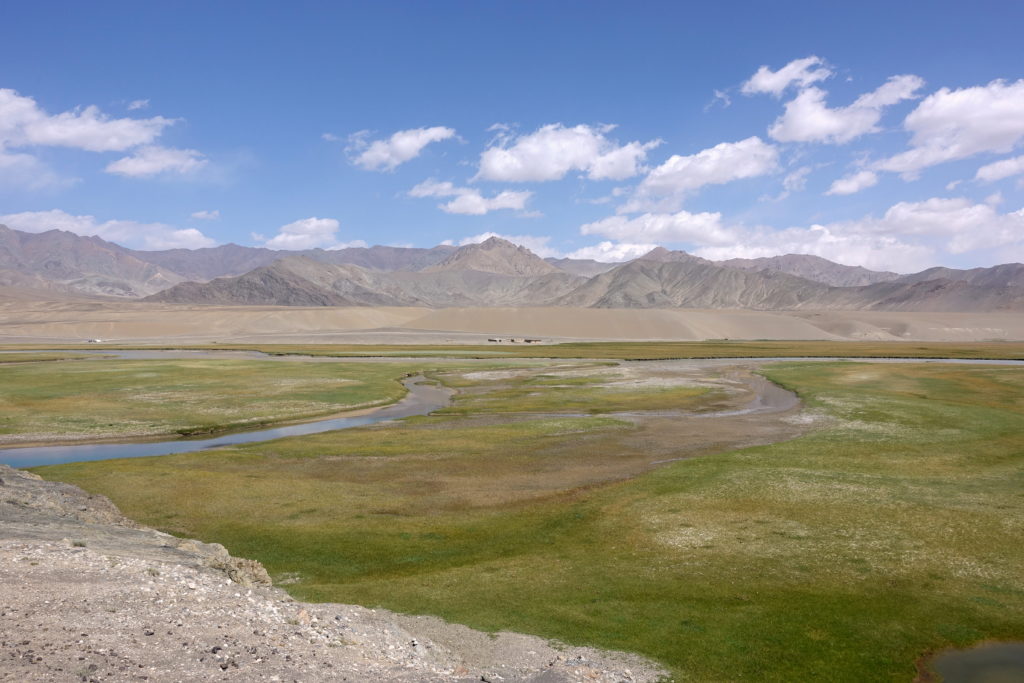
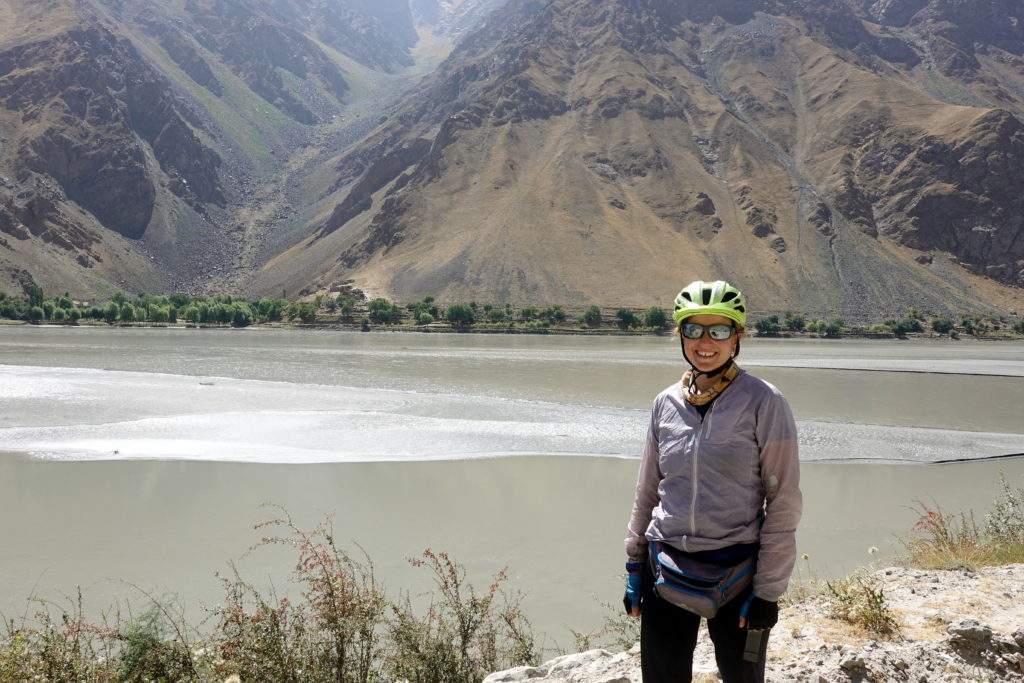
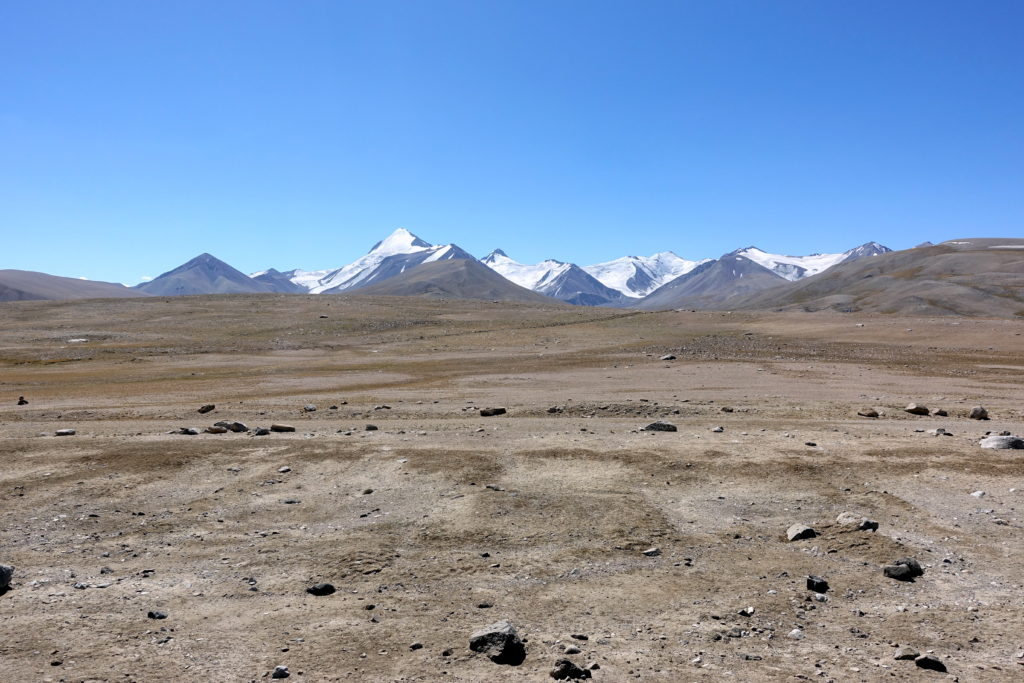
- Uzbekistan: the most historical country, with old cities, many monuments and the core of the silk-road cities in Central Asia. Uzbeks thus consider themselves a little as being the only urban civilization (versus nomadic tribes) in the mountains or in Kazakhstan. Although very isolated (a double landlocked country, today far from any trade route, and yet with little interest to develop connections with neighboring countries) but nevertheless the most populated, Uzbeks consider unconsciously that all Central Asia shall be theirs.
- We liked:
- The road conditions are good! Especially after Tajikistan and Kyrgyzstan, we were glad to finally have continuous stretches of asphalt without too many potholes (small potholes are useful when cycling as they make car drivers a lot more cautious).
- The historic cities – basically Samarkand, Bukhara and Khiva – are impressive and remarkable, they are well maintained and are worth visiting.
- Some generous people, particularly after near the Tajik border until Qarshi (very few tourists) – we had everyday people offering us chocolate bars, ice-creams, and other treats!
- The new president seemed to shake things up in the country and finally try to solve the serious problems of the country (since 2016), this is particularly notable after the reign of the previous dictator Karimov (completely nuts): tourism develops, Uzbekistan opened its border more widely to its neighboring countries, they finally want to get rid of the cotton industry and the corruption linked to its system, possibly work on refilling the Aral Sea (that may take a few decades!), etc.
- We disliked:
- Some men are slightly creepy! Every single women tourist that we have met (not those in guided tours!) have encounters some type of weird moment – from men who want to kiss you, to some touching or grabbing, etc. There is some impunity against forced marriage (including children), and women are clearly a lower social class. It did not feel like something directly liked to religion (few Uzbeks are practicing, women do not wear veils or hide and are active in the society), but a deep cultural habit.
- Again, about men (who are the primary car drivers) … we got used to honking and so on, but some Uzbeks felt like being really pushing it. It is not just a short honk and waving, but a non-stop honking behind you, at your pace, until you acknowledge them. We are all day long on the road, and that would be fine in the Pamirs with 10 cars per day, but Uzbekistan has a larger population (with a lot of cars) so we got slightly tired of getting interested in every single driver. Even better, you get regularly stopped (the car passes you, puts the warning lights on and slows down until you stop) by group of guys who want to take a selfie with your own camera. It’s funny once, but we have a lot of pictures of Cedric (Cassie is happy to be ignored) with a group of locals on the side of the road… The real treat was having a driver slow down and take a video of us on their smartphone while still driving – funny at first, but we don’t condone distracted driving practices (and mostly stopped the bike when we saw what the driver was doing, so they would be forced to drive ahead).
- The desert landscape! The country west of Bukhara, and especially after Khiva, is desperately monotonous and boring. I really would not recommend anyone to cycle across that (we only met one person, a Swiss, who had done it, and he told us he became almost insane after the several weeks alone with the exact same sight).
- The Plov! I guess this can be about Central Asia in general, if you look up the region’s national dishes, but Uzbekistan is richer, and they have enough farmland to grow other things than cotton – and then possibly make some recipe variations! Seriously, why does everyone revere this dish? It feels that they only like that, only serve that, and make that and almost worship it. It is not intrinsically bad, but we just could not see it any longer. Cassie was also starting to loathe the mutton sitting on top of the dish.
- Uzbekistan is the country where we got the sickest (again, digestion issues). We however cannot explain it there by the lack of electricity and fridges.
- We liked:
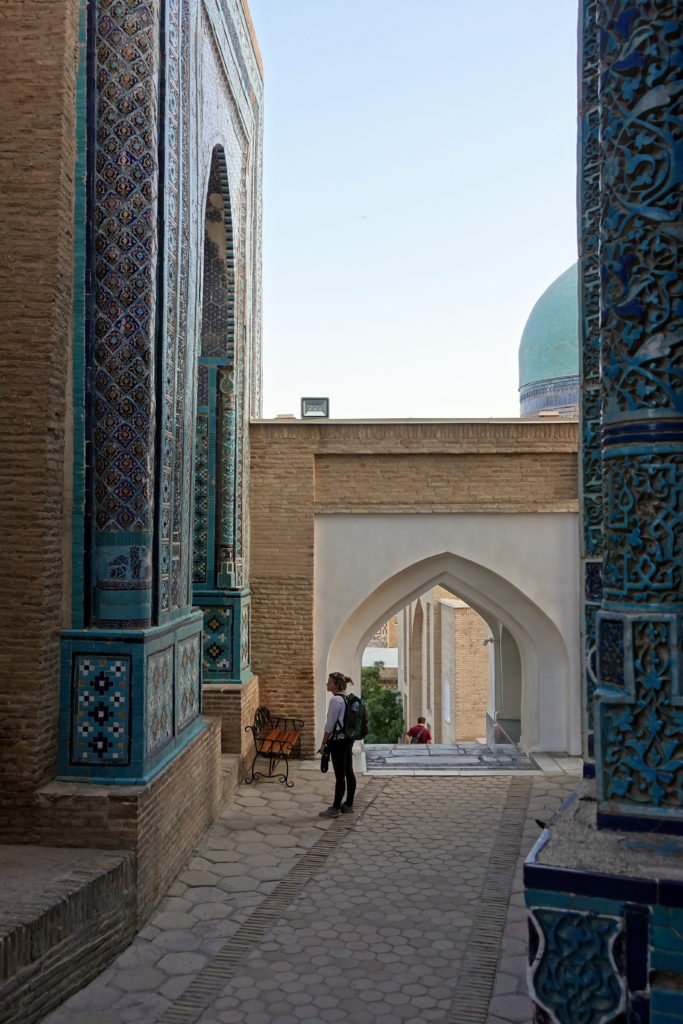
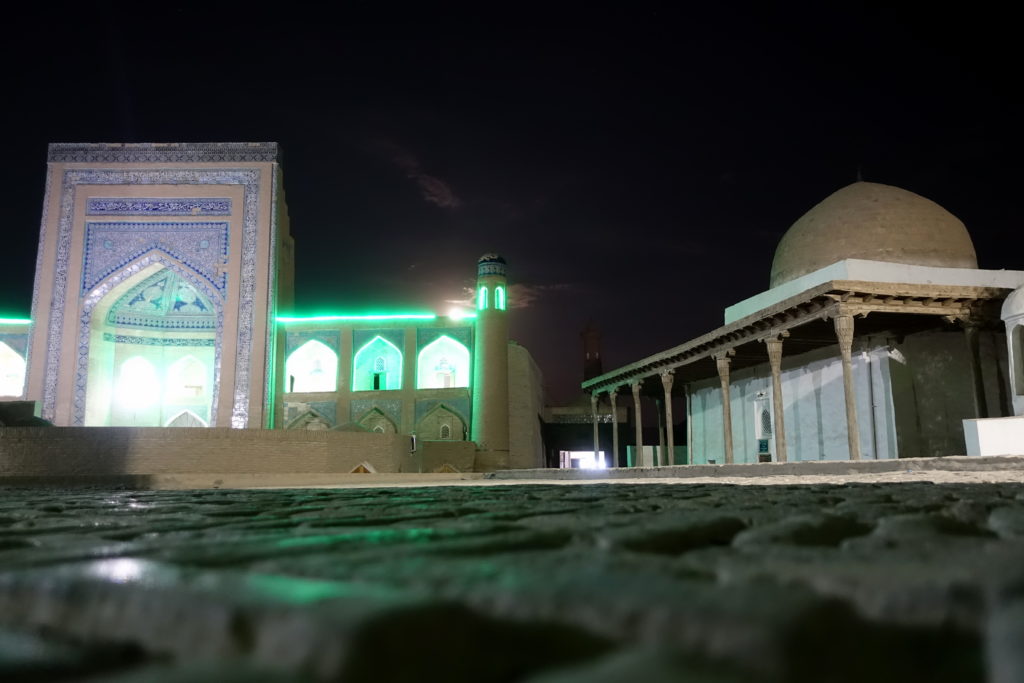
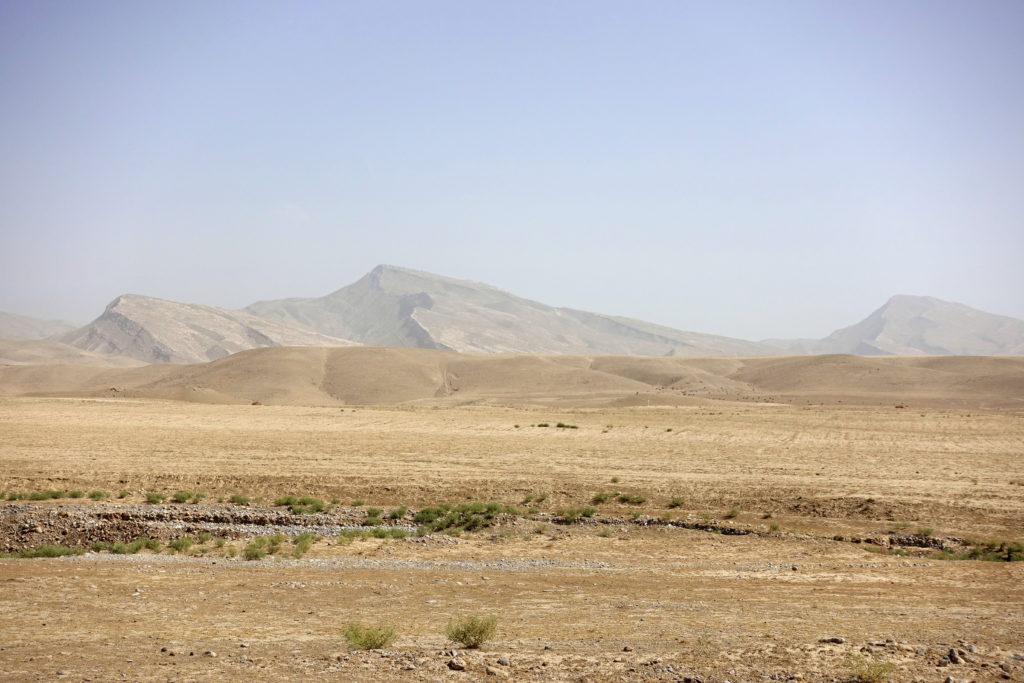
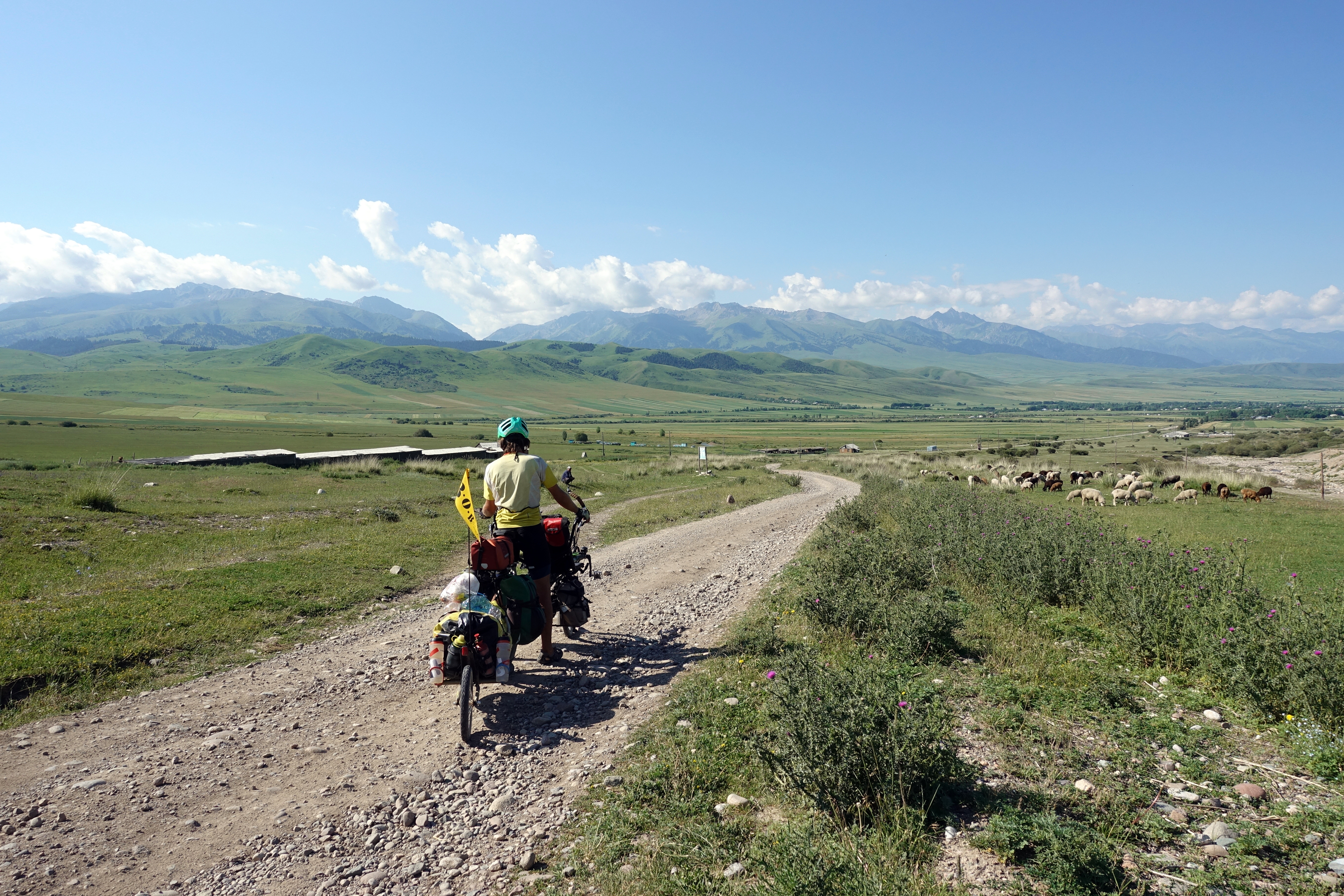
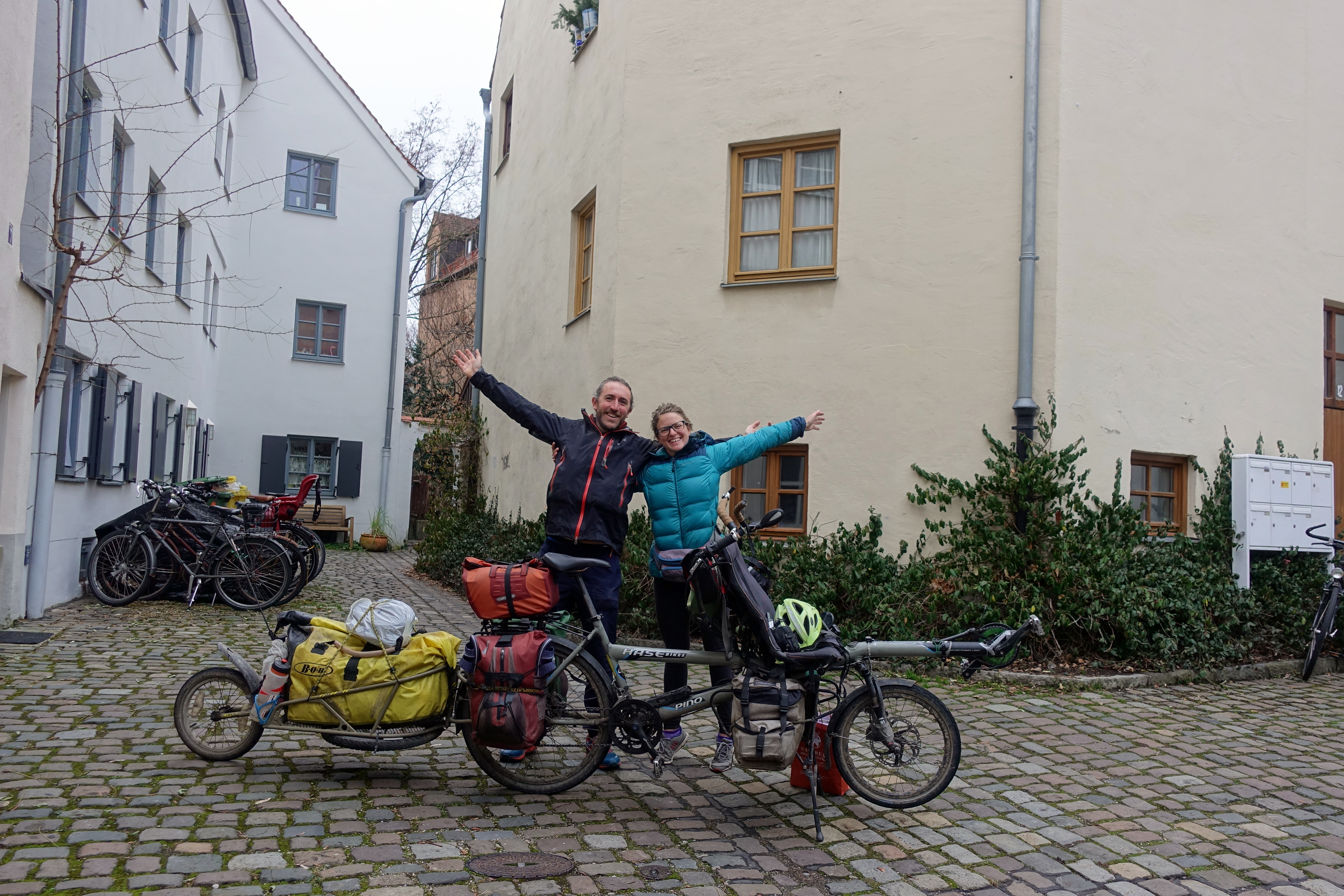
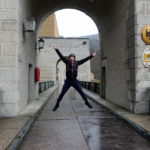
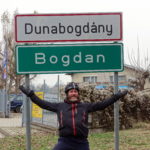
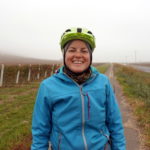
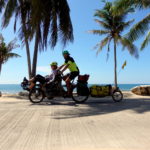
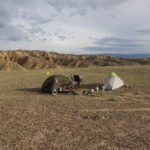
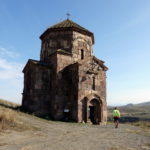
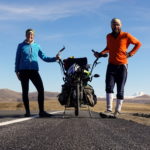
Marssi
November 2, 2018 — 21:18
Great summary !
I could never have put up with all those stupid guys, just reading at your posts I wanted to start a Manocide..
Cassie & Cédric
November 3, 2018 — 09:01
Seriously…and that wasn’t just Cassie getting annoyed! The good thing heading west is that every country feels now like an improvement 🙂
Colby
November 3, 2018 — 00:27
Yes, an excellent summary of your travels across Central Asia in the ‘Stans! You two endured alot and continue to amaze us.
Cassie, your grandpa Al, being an accomplished photographer with a PhD in geography, would have so enjoyed reading about your travels and marveled over the photography. Love to both of you!
Colby and Carol
Cassie & Cédric
November 3, 2018 — 08:58
Hehe, well we may soon get a PhD in bicycle-tinkering with specialization in zip-ties and duct tape!
Colby & Carol
November 4, 2018 — 03:14
Ahhh, the many uses of zip-ties and duct tape. I’m sure you have kept track of each repair and normal maintenance that was performed on the Hase and BOB. It will be of interest if there was anything you packed that was unnecessary and what you wish you would have included when preparing for a year long journey by cycle.
Cassie & Cédric
November 9, 2018 — 20:10
So far we have been pretty good at packing the good amount of gears. We probably had a little too many medicines, but we are also lucky to not have used those.
We will probably do a blogpost at the end about how the gears we had lasted, and if we would take similar stuff. First hint: we would not take any merino clothes… they all have tens of holes in them!